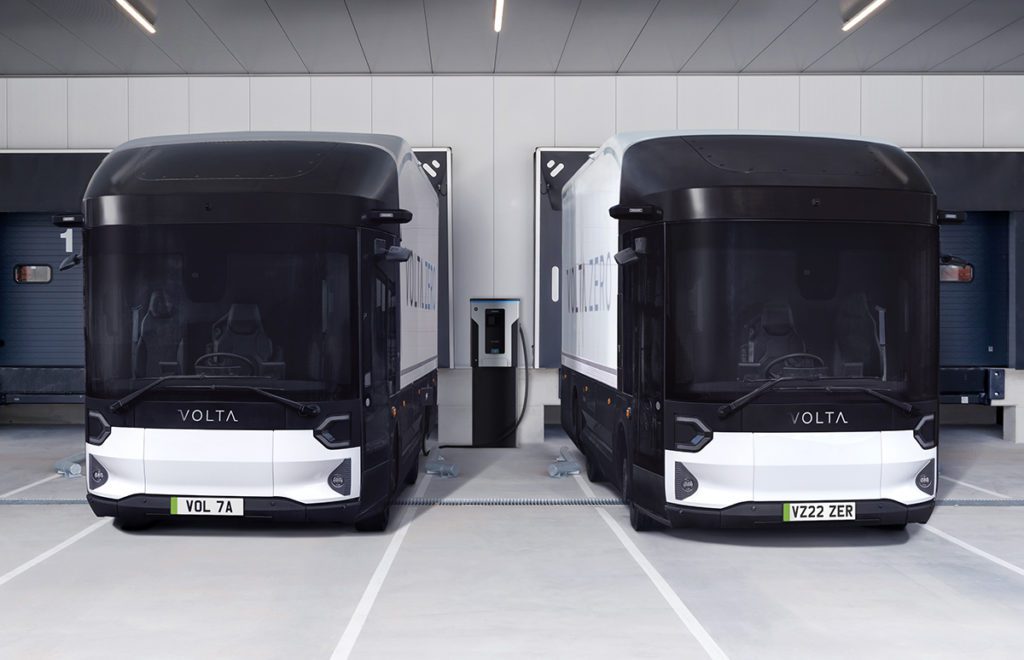Electric truck makers are having a rough time these days, as rising interest rates make fundraising harder. The German company B-ON, maker of the Streetscooter, filed for insolvency in September. In the latest chapter of Lordstown Motors’ colorful history, a bankruptcy court approved the sale of the company’s assets to its founder. Arrival is undergoing restructuring and has been laying off workers. Proterra‘s Chapter 11 filing surprised a lot of folks, and is having ripple effects, as the company was a supplier of batteries and powertrains to a number of other OEMs.
The latest shoe to drop was Volta Trucks, which has filed for bankruptcy proceedings in Sweden, citing difficulties with suppliers, including Proterra. Volta had raised around 300 million euros ($316 million) from investors, and said it had an order book of more than 5,000 vehicles. It had selected a factory in Austria and was working toward mass production.
Proterra’s Chapter 11 filing came “at the absolute worst time, when production was to be scaled up,” said Byggmastare Anders J Ahlstrom, one of Volta’s largest shareholders. The supplier’s troubles “negatively affected our ability to raise sufficient capital in an already challenging capital-raising environment for electric vehicle players,” said Volta’s board.

The automotive business is proverbially unfriendly to startups in the best of times, and times are getting tough. Simon Davis of Ox Delivers, which builds electric delivery trucks for African markets, blames the recent carnage on “a nasty combination of global investment trends, sector overexcitement and a lack of understanding of what it takes to be successful in auto today.”
Back in 2021 everyone was searching for “the next Tesla.” (Like “the next Bob Dylan,” none ever appeared.) EV pundit James Carter quipped that “at one point it felt like anyone with an idea and a sketch could raise a billion dollars.” (Shades of the 1990s Internet craze, when VCs were throwing billions at any company with a web site.)
Now, alas, global VC investment is down to pre-pandemic levels, and higher interest rates are making it ever-harder for startups to raise cash. It probably also doesn’t help that incumbent truck-makers are now producing electric trucks (and unlike the legacy carmakers, some of them have even beaten Tesla to market).
As electric truck expert Rustam Kocher explained to Charged, California’s regulations are forcing trucking companies to go electric quickly, and they’re likely to choose OEMs that they trust and move forward. “Whether that’s Volvo, Freightliner, PACCAR or Navistar, they have relationships with those OEMs and so they’re going to trust them to build a vehicle that will perform under the conditions that they need it to perform,” Rustam told us. (He’s also a fan of the Tesla Semi.)









